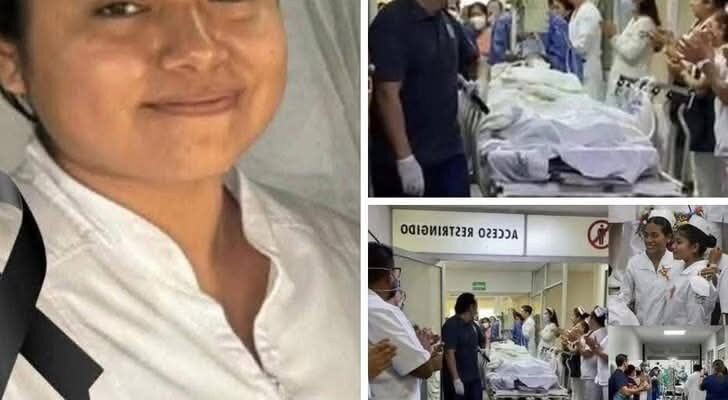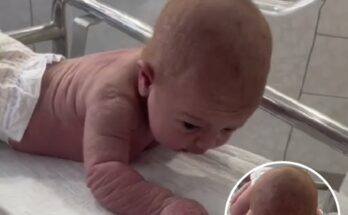In an extraordinary act of selflessness and compassion, Rosaura García Moreno, a 20-year-old nursing student from Tuxtepec, Oaxaca, has become a beacon of hope and a true hero for many families in need. After being diagnosed with brain death following a tragic car accident that left her with multiple fatal injuries, Rosaura’s life came to an abrupt and heartbreaking end. However, through the incredible decision of her parents to authorize the donation of her organs, Rosaura’s story transformed into one of life, legacy, and love.
The accident, which shook her family and local community, occurred just as Rosaura was pursuing her dream of becoming a nurse at the Universidad del Papaloapan, Tuxtepec campus. Friends and teachers remember her as a bright, compassionate young woman who always prioritized the well-being of others. Though her future was cut short, her calling to care for others endured until her final moments.
After doctors confirmed the irreversible loss of all brain activity, a representative from the Mexican Social Security Institute (IMSS) approached her grieving family to discuss the possibility of organ donation. In an extraordinary gesture of courage and generosity, Rosaura’s parents agreed. They expressed that their daughter had always wanted to make a difference—and now, even in death, she could fulfill that wish.
The High Specialty Medical Unit (UMAE) of the IMSS at the Adolfo Ruiz Cortines National Medical Center (Specialty Hospital No. 14) in Veracruz swiftly coordinated the complex medical logistics required to make Rosaura’s donation possible. Her liver was carefully transported to the Siglo XXI National Medical Center in Mexico City, where it gave a second chance at life to a critically ill patient on the transplant list. Meanwhile, her kidneys and corneas remained in Veracruz, where they were successfully transplanted into patients whose lives were either saved or dramatically improved.
Organ donation is a profound gift—one that bridges the unbearable grief of loss with the miracle of renewed life. Rosaura’s donation has not only directly saved the lives of multiple individuals but will also enhance the quality of life for as many as 50 more people. From restoring sight to ending the agony of kidney dialysis, her legacy now lives on in the bodies and stories of others.
In the medical world, Rosaura is affectionately honored as “a woman from the white area,” a term often used in Mexico to describe those in the healing professions. It is symbolic of the white coats worn by healthcare workers, but it also reflects the purity of heart that she carried through her short yet impactful life. Rosaura did not just study to become a nurse—she lived and died as one, embodying the ultimate spirit of caregiving.
Her family, school, and the broader Oaxacan community have rallied in support of her legacy, calling on others to consider the power of organ donation. In a country where thousands still wait for lifesaving transplants, Rosaura’s story serves as a powerful reminder that even in tragedy, hope can be born.
As Mexico honors her brave act, Rosaura García Moreno will forever be remembered not for how she died, but for how she chose to give life. Her memory will live on—not just in the hearts of her loved ones, but in the lives she touched, the futures she helped rebuild, and the message she left behind: that one person can truly make a difference.



